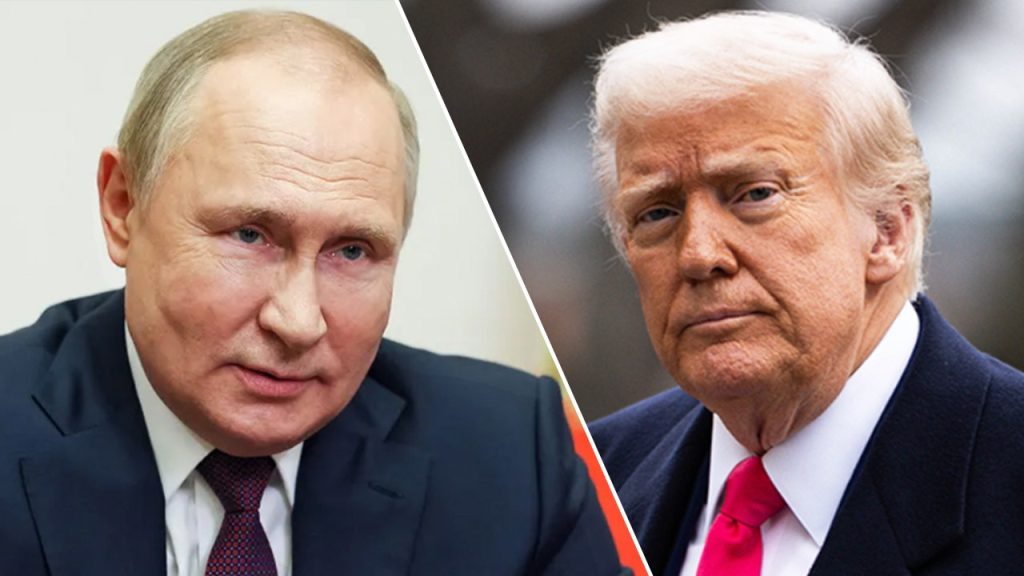In a significant diplomatic effort, the White House announced that President Donald Trump is committed to facilitating peace talks between Russia and Ukraine. This initiative comes as tensions escalate following a deadly missile attack in Kyiv, resulting in multiple casualties. Trump aims to use economic measures, including potential sanctions, to pressure both sides towards an agreement, expressing frustration with their slow progress in negotiations.
| Article Subheadings |
|---|
| 1) White House Announcement and Trump’s Position |
| 2) The Context of Recent Attacks |
| 3) Trump’s Strategy and Potential Sanctions |
| 4) Global Reactions and Future Steps |
| 5) Conclusion and Summary Insights |
White House Announcement and Trump’s Position
The White House revealed a pivotal initiative aimed at advancing peace talks between Russia and Ukraine. According to White House officials, President Trump is determined to do “whatever it takes” to encourage dialogue between the two nations. This statement has generated headlines as it reflects Trump’s readiness to support Ukraine while also holding Russia accountable for its actions. The administration emphasized that Trump’s approach involves both diplomatic efforts and potential economic repercussions.
White House Deputy Chief of Staff James Blair elaborated on Trump’s sentiments during a recent interview. Blair highlighted that the president feels progress is being made; however, he is frustrated with the pace at which both parties are responding. Trump’s disappointment stems not only from the ongoing conflict but also from what he perceives as a lack of urgency from Ukrainian officials in signing peace agreements. He has openly encouraged them to expedite these discussions, reflecting his proactive stance in this high-stakes situation.
The Context of Recent Attacks
The backdrop to this diplomatic push is a chilling missile strike that occurred in Kyiv, inflicting severe damage and loss of life. On April 24, a Russian missile attack killed at least 12 individuals and injured over 90, including several children. This incident has further complicated the already tense situation, raising concerns about civilian safety and international humanitarian law.
As the conflict continues, public sentiment has shifted, with many calling for stronger actions against Russia. The attack, which was met with widespread condemnation, has intensified calls within the United States and among allies for a harsher response to Russian military aggression. Trump’s administration faces the daunting challenge of navigating these complex dynamics while working toward a resolution.
Trump’s Strategy and Potential Sanctions
In the face of rising tensions, Trump has suggested that increasing sanctions may be necessary to catalyze negotiations. He has expressed dissatisfaction with the recent actions taken by Russian forces, especially concerning civilian casualties. This dissatisfaction has prompted him to consider not only secondary tariffs on oil but also additional sanctions that aim to exert economic pressure on Russia to reconsider its approach.
Trump’s strategy includes leveraging these economic tools to push for peace talks while maintaining a stance of support for Ukraine. The administration believes that by imposing financial consequences, it can create an incentive for both sides to come to the negotiation table. Officials have indicated that these economic measures will be taken seriously and will play a crucial role in the unfolding diplomatic dynamics.
Global Reactions and Future Steps
The announcement of Trump’s intentions has evoked varied reactions on the global stage. Allies of the United States, particularly in Europe, are closely monitoring the situation and are cautiously optimistic about the potential for peace negotiations. However, skepticism remains regarding Russia’s willingness to engage seriously in dialogue. Notably, Marco Rubio, the U.S. Secretary of State, tempered expectations during a recent NBC interview, emphasizing that while progress is being made, a comprehensive peace agreement is yet to be realized.
Russia has indicated a willingness to discuss peace but has refrained from committing to an unconditional ceasefire. This ambiguity adds another layer of complexity to efforts aimed at fostering dialogue. The Kremlin recently announced a temporary ceasefire scheduled to take place from May 8 to May 10, coinciding with the 80th anniversary of the Soviet Union’s victory over Nazi Germany in World War II. However, Ukraine has not yet publicly responded, raising concerns over the sincerity of these gestures.
Conclusion and Summary Insights
In conclusion, the ongoing conflict between Russia and Ukraine necessitates a multifaceted approach involving diplomacy, economic sanctions, and international cooperation. President Trump’s push for negotiations highlights the urgency of resolving the crisis while addressing the complexities posed by aggressive military actions. The unfolding situation will require careful monitoring, as the potential for both constructive dialogue and escalated tensions remains.
| No. | Key Points |
|---|---|
| 1 | Trump seeks to facilitate peace talks between Russia and Ukraine. |
| 2 | A recent missile attack in Kyiv has raised tensions significantly. |
| 3 | Increased sanctions are being considered to pressure Russia into negotiations. |
| 4 | Valid skepticism exists regarding Russia’s genuine interest in peace. |
| 5 | Future developments will hinge on diplomatic and economic responses from the U.S. and allies. |
Summary
The situation in Ukraine remains dire as diplomatic efforts intensify. President Trump’s decisive actions and statements underscore both the urgency and complexity of international peace negotiations. As global observers watch closely, the intertwining factors of military action, diplomatic ties, and economic strategies will shape the path forward in resolving the conflict.
Frequently Asked Questions
Question: What are the main objectives of Trump’s peace initiative?
Trump aims to facilitate dialogue between Russia and Ukraine while imposing sanctions to pressure both sides toward an agreement.
Question: How has the international community responded to the recent missile attacks?
The international community has largely condemned the missile attacks in Kyiv, calling for stronger actions against Russia and increased support for Ukraine.
Question: What role do sanctions play in the U.S. strategy?
Sanctions are intended to apply economic pressure on Russia to encourage compliance with peace negotiations and to protect civilian safety in Ukraine.


